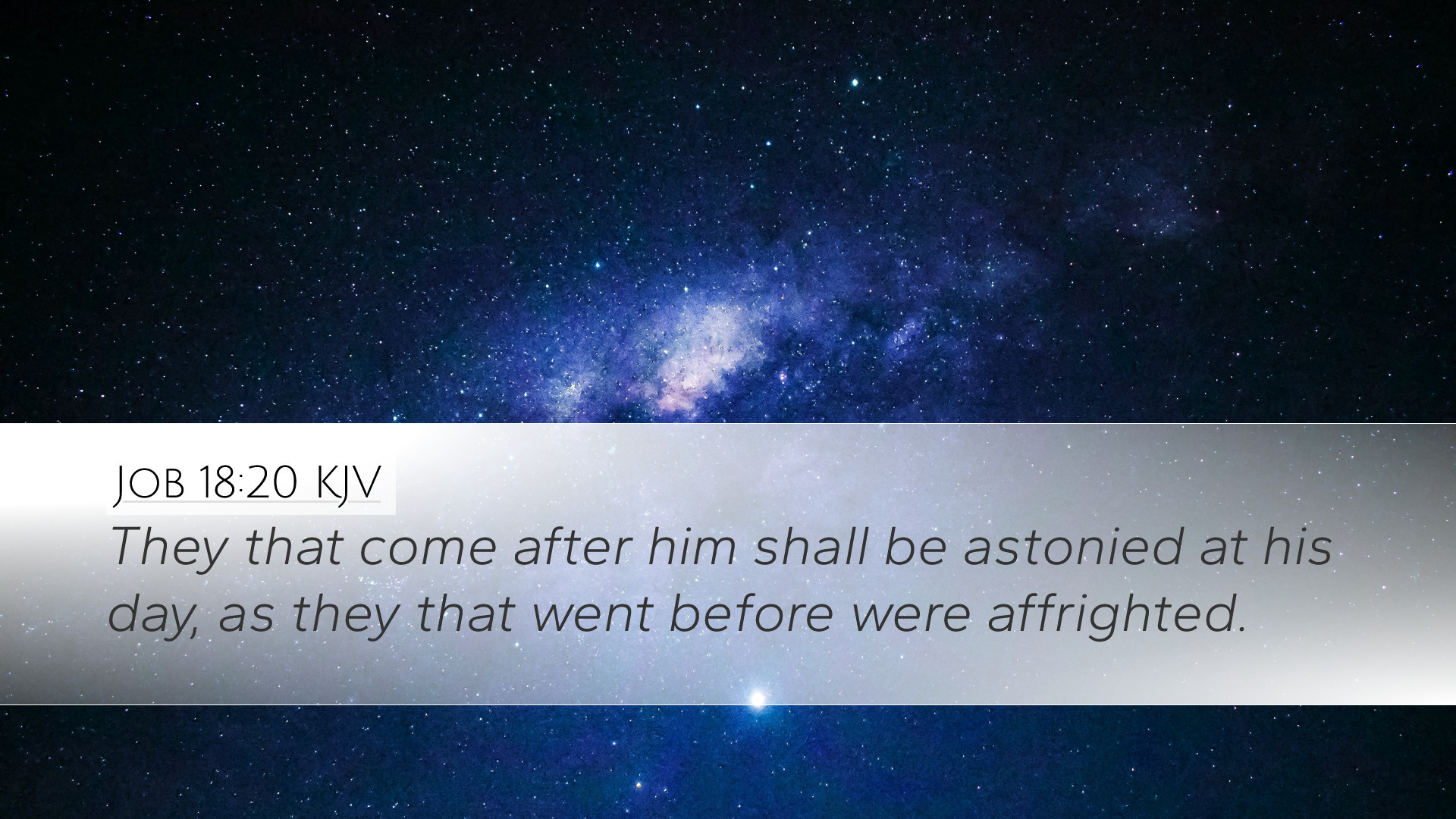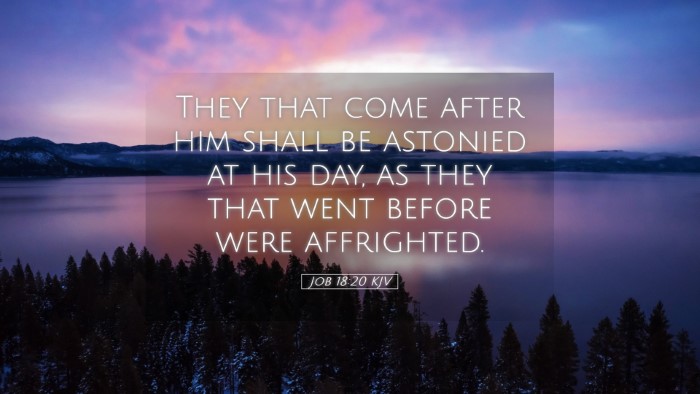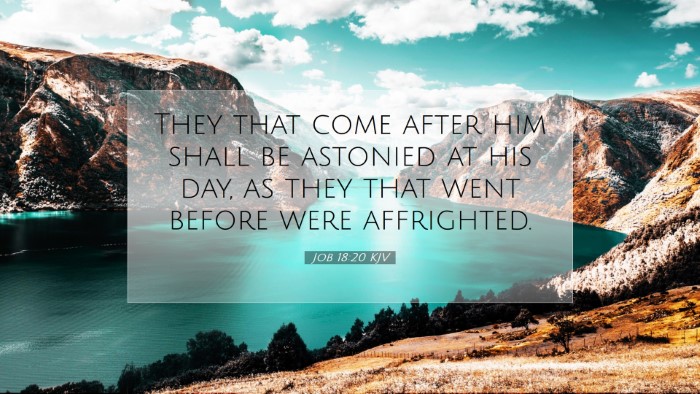Old Testament
Genesis Exodus Leviticus Numbers Deuteronomy Joshua Judges Ruth 1 Samuel 2 Samuel 1 Kings 2 Kings 1 Chronicles 2 Chronicles Ezra Nehemiah Esther Job Psalms Proverbs Ecclesiastes Song of Solomon Isaiah Jeremiah Lamentations Ezekiel Daniel Hosea Joel Amos Obadiah Jonah Micah Nahum Habakkuk Zephaniah Haggai Zechariah MalachiJob 18:20
Job 18:20 KJV
They that come after him shall be astonied at his day, as they that went before were affrighted.
Job 18:20 Bible Commentary
Commentary on Job 18:20
Job 18:20: "They that come after him shall be astonished at his day, as they that went before were affrighted."
Introduction
The book of Job is a profound exploration of suffering, justice, and the complex relationship between humanity and the divine. Job 18:20 presents a sobering reflection on the fate of the wicked, emphasizing the consequences of their actions and the profound impact of suffering on human perception. This commentary synthesizes insights from various public domain sources, including Matthew Henry, Albert Barnes, and Adam Clarke, to provide a comprehensive analysis of this verse.
Understanding the Context
Job 18 is part of the discourse between Job and his friends, specifically Bildad the Shuhite, who offers a grim outlook on the fate of the wicked. This chapter serves to underscore the inevitable downfall that awaits those who oppose God's ways. It is essential to consider the literary and theological context of this verse to grasp its full significance.
- Bildad's Rebuttal: Bildad speaks with conviction, believing that the justice of God inevitably leads to the downfall of the wicked.
- Power of Judgment: The verse points to a generational response to the wicked—a poignant reminder of the lasting impacts of one's life choices.
Exegesis of Job 18:20
In examining Job 18:20, we can break it down into two primary parts:
- The Response of Future Generations: "They that come after him shall be astonished at his day..." This phrase indicates that those who witness the downfall of the wicked are left in astonishment. The term "astonished" suggests a bewilderment or shock that results from the judgment executed upon the wicked.
- The Connection with the Past: "...as they that went before were affrighted." This comparison highlights a continuity in human experience, where the fates of the wicked serve as cautionary tales for both contemporaries and future generations. Such reflections evoke fear and reconsideration of one's path.
Theological Implications
Job 18:20 raises several theological questions about justice, retribution, and the character of God.
- The Nature of Divine Justice: As noted by Matthew Henry, God's judgments are thorough and unchangeable. This verse reinforces the belief that God will not allow wickedness to go unpunished, and that such outcomes serve as warning signs for those who witness them.
- The Impact of Witnessing Judgment: Albert Barnes emphasizes the effect that witnessing the destruction of the wicked has on the observer, instilling a sense of moral caution. This verse suggests that there is a community responsibility to reflect on the lives and ends of those who lived unrighteously.
- The Horrors of Wickedness: According to Adam Clarke, the astonishment and fear felt by future generations serve as a testimony to the horror of a life lived in sin. This verse implicitly urges individuals to align their lives with righteousness to avoid such a fate.
Practical Applications
For pastors, students, and theologians, Job 18:20 bears several practical implications:
- Encouragement to Righteous Living: This verse serves as a poignant reminder that our lives may become warnings or examples for others. It compels believers to pursue righteousness actively.
- Teaching on God's Justice: It is crucial to instruct congregations on the reality of God's justice, as depicted in Job 18, affirming that while grace is abundant, the consequences of sin are severe.
- Reflection on Human Nature: Job 18:20 invites a deeper contemplation of our collective human experiences regarding justice, suffering, and mortality. By understanding these dynamics, we can better counsel those in pain or confusion.
Conclusion
Job 18:20 serves as a profound reminder of the nature of divine justice and the consequences of a wicked life. Through the combined insights of respected public domain commentaries, we see a rich tapestry of meaning that calls for reflection, repentance, and righteous living. As we engage with this verse, may we seek to embody the wisdom it imparts, knowing that our lives not only impact our immediate circles but also resonate through generations.


